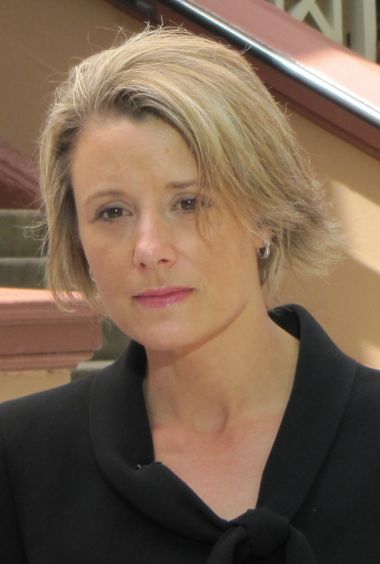Controversial article likens child sex abuse in the Church to 'terrorism' and 'Catholic extremism'

A leading Australian writer and former politician has likened child sexual abuse in the Catholic Church to 'terrorism' and extremism, arguing that it is responsible for many deaths, mainly by suicide.
Kristina Keneally, a former Australian Labor party leader and premier of New South Wales, wrote in the Guardian that the label 'institutional sexual abuse' was inadequate and 'too bland to confront us with the terror and deadly impact on the victims'. She added: 'It allows abusers – individually or as a class – to continue hiding behind the institution.'
Instead, Keneally wrote: 'The end result of this flawed theology and ecclesiology is the nauseating, terrifying, grotesque, ritualised and repeated violent assaults and rapes of children by Catholic clergy and religious.
'Should we label this "Catholic terrorism"? The Australian victims of sexual abuse have been terrorised by the Catholic church, no doubt. Is it "radical Catholic ideology" or "extremist Catholic belief" to cover up the sin of sexual abuse for "the greater good"? It's hard to deny it. As a Catholic, I shudder at the thought. But I know that such labels would be truthful. '
The former politician is known as a staunch critic of the Catholic Church, though she herself is a practising Catholic. Her husband is the nephew of the prolific Australian writer Thomas Keneally, best known for his work about the Holocaust, Schindler's Ark, which was adapted by Stephen Spielberg into the Academy Award film Schindler's List.
'The current royal commission into institutional sexual abuse has heard thousands of submissions from victims and their families. Too many victims' stories include suicide,' she wrote for 'comment is free' in the Guardian.
'In Ballarat, one police officer compiled a dossier of 43 deaths – suicides, overdoses and others – attributable to sexual abuse perpetrated by Catholic priests and brothers in that diocese alone... "Institutional sexual abuse" is a phrase that describes where the abuse occurs rather than who perpetrated the abuse and who the victims are. But the label "institutional sexual abuse" is too bland to confront us with the terror and deadly impact on the victims. It allows abusers – individually or as a class – to continue hiding behind the institution.'
More than 4,000 cases of sexual abuse in the Catholic church were reported to the royal commission in Australia.
'These reports showed wilful ignorance by church leaders, systematic shielding of abusers and a continual preference for the perpetrator and the institution over the victim,' Keneally wrote in the controversial article entitled, 'Let's call child sexual abuse in the church what it is: Catholic extremism'.
Abuse, she wrote, comes from 'a warped, extreme and deeply flawed interpretation of the Catholic faith...And we should not comfort ourselves that this distorted theology and these crimes are necessarily a thing of the past. If anything, seminaries are becoming more orthodox and traditional. Little has changed in structure or governance of the Catholic church.'
Responding to the article, Jack Valero, the co-ordinator of Catholic Voices, told Christian Today: 'Kristina Keneally is right to be very angry at the extent of child abuse in Catholic institutions and by Catholic priests uncovered by the royal commission. All Catholics are very angry. She is also right to point out that we need to establish where it came from, so we can achieve the three things we all want: for the abuse never to happen again, for the victims to be properly recompensed and helped and for the perpetrators to be punished.
'However, it seems to me misguided to link orthodoxy and evangelical fervour with abuse. If anything the contrary is true: the closer one follows Christ and his teachings, the less chance that institutional abuse will be able to occur. The word "extremism" sounds frightening enough, but it doesn't get us any closer to the source of the problem, which lies in clericalism, abuse of power and loose sexual mores.'











